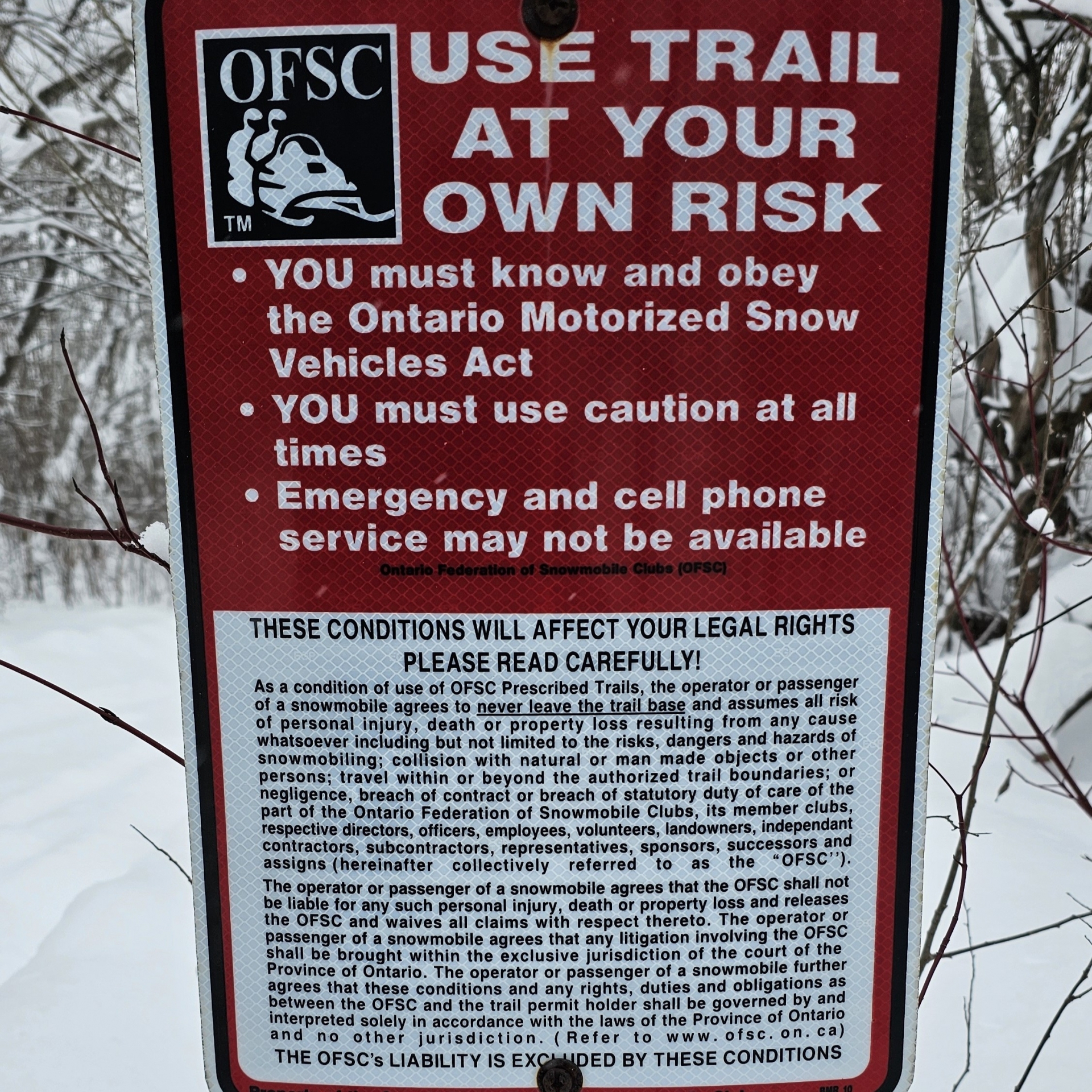Southern Georgian Bay O.P.P.
in Midland
On March 18
at 8:58 PM
FROM/DE: Southern Georgian Bay Detachment DATE: March 18, 2025
OPP Investigators Seeking Assistance In Midland Inappropriate Interaction Investigation
(MIDLAND,ON)- Investigators from the Southern Georgian Bay OPP Detachment are seeking assistance from the public after the OPP Communication Centre received a complaint of an inappropriate interaction incident that was reported to have occurred near the intersection of Maxwell Avenue and Christine Drive, Midland between the hours of 7:30 p.m. and 8:00 p.m. of March 14, 2025.
A female victim has reported having an interaction with an unknown male who was driving a smaller 4 door silver coloured car who fled the scene after the incident in an unknown direction at a high rate of speed.
The unknown white male suspect being sought in this criminal investigation is described as being of large physical size, wearing a red and black base ball cap, no facial hair wearing a black puffy style jacket with jeans.
Investigators are asking that if you were driving in the area and have dashcam video or if a community member has information about this crime #E250309804 or has home security video to please contact the OPP at 1-888-310-1122, opp.southern.georgian.bay@opp.ca or by calling Crime Stoppers at 1-800-222-TIPS (8477) or submit your anonymous information online at https://ontariocrimestoppers.ca/submit-a-tip/submit-a-tip. You can follow Crime Stoppers of Simcoe Dufferin Muskoka www.crimestopperssdm.com on X or Facebook.
The OPP reminds the public to always use caution and be aware of their personal safety at all times. The OPP's website www.opp.ca contains a number of useful resources, tips and links.
-30-
Media Officer
Provincial Constable David Hobson
///relations.fatigue.appraise
T-705-733-5440 E- david.hobson@opp.ca
Social Media OPP Central Region X / OPP Central Region Facebook / OPP Central Region Instagram

Southern Georgian Bay O.P.P.
in Midland
On March 17
at 10:18 PM
March is Fraud Prevention Month #FPM2025, and the Canadian Anti-Fraud Centre (CAFC) will focus on uncovering fraud—revealing the tactics criminals use to create convincing identities, impact on victims and what we are doing to fight fraud. Fraudsters are experts at disguising themselves and creating false identities to manipulate, deceive, and steal from their victims. By exposing these deceptive practices, we aim to empower Canadians to spot fraud before it happens.
This week, we look to uncover the effects of fraud has on victims. Fraud affects many Canadians every year, causing not only financial losses but also emotional and psychological harm. Despite the widespread impact, fraud is often minimized with dismissive phrases like “it's just a scam" or “buyer beware". This attitude contributes to victim shaming leading to further negative effects on victims and ultimately lower reporting rates. Fraud is a serious crime with lasting consequences. Dismissing it as “just a scam" ignores the harm it causes which can lead to feelings of shame among victims. By treating fraud with the gravity it deserves, we can create a supportive environment where victims feel empowered to seek the help and support they need.
Fraud can have a wide range of effects on victims, including:
Financial loss: Victims often lose significant amounts of money, sometimes their life savings, making recovery extremely difficult
Emotional distress: Fraud can lead to feelings of betrayal, anger, and sadness, particularly if the scam involved a personal or emotional connection
Psychological effects: Victims may experience anxiety, depression, or post-traumatic stress after being defrauded
Social isolation: Shame and embarrassment can make victims withdraw from family and friends, further compounding their distress
Loss of trust: Many victims struggle to trust others after being scammed, especially if the perpetrator posed as a trustworthy authority figure or loved one
It's crucial to acknowledge that anyone can be a victim to fraud, regardless of their age, education, or background. Fraudsters continuously change their methods, making it increasingly difficult to identify fraud when it is happening. By breaking the stigma surrounding fraud victimization, we can encourage victims to come forward and report incidents without fear of judgment.
Fraud Prevention at https://youtu.be/qXJc3mj5yR8
Southern Georgian Bay O.P.P.
in Midland
On March 17
at 7:40 PM
March is Fraud Prevention Month #FPM2025, and the Canadian Anti-Fraud Centre (CAFC) will focus on uncovering fraud—revealing the tactics criminals use to create convincing identities, impact of victims and what we are doing to fight fraud. Fraudsters are experts at disguising themselves and creating false identities to manipulate, deceive, and steal from their victims. By exposing these deceptive practices, we aim to empower Canadians to spot fraud before it happens.
This week, we look to uncover the effects of fraud has on victims. Fraud affects many Canadians every year, causing not only financial losses but also emotional and psychological harm. Despite the widespread impact, fraud is often minimized with dismissive phrases like “it's just a scam" or “buyer beware". This attitude contributes to victim shaming leading to further negative effects on victims and ultimately lower reporting rates.
Fraud is a serious crime with lasting consequences. Dismissing it as “just a scam" ignores the harm it causes which can lead to feelings of shame among victims. By treating fraud with the gravity it deserves, we can create a supportive environment where victims feel empowered to seek the help and support they need.
Fraud can have a wide range of effects on victims, including:
• Financial loss: Victims often lose significant amounts of money, sometimes their life savings, making recovery extremely difficult
• Emotional distress: Fraud can lead to feelings of betrayal, anger, and sadness, particularly if the scam involved a personal or emotional connection
• Psychological effects: Victims may experience anxiety, depression, or post-traumatic stress after being defrauded
• Social isolation: Shame and embarrassment can make victims withdraw from family and friends, further compounding their distress
• Loss of trust: Many victims struggle to trust others after being scammed, especially if the perpetrator posed as a trustworthy authority figure or loved one
It's crucial to acknowledge that anyone can be a victim to fraud, regardless of their age, education, or background. Fraudsters continuously change their methods, making it increasingly difficult to identify fraud when it is happening. By breaking the stigma surrounding fraud victimization, we can encourage victims to come forward and report incidents without fear of judgment.
How to protect yourself and your loved ones:
• Share information related to common types of fraud in order to reduce the stigma and prevent others from falling victim
• Have a regular discussion with friends and family members regarding new types of fraud you`ve encountered or have heard of
• Fraud can happen to anyone. Don't be ashamed to share your experience as it can help save a loved one from being a victim
• Education and awareness are one of the most effective methods to help combat fraud
• Visit the CAFC's website for current fraud awareness and education material
Anyone who suspects they have been the target of cybercrime or fraud should report it to their local police and to the CAFC's online or by phone at 1-888-495-8501.

Southern Georgian Bay O.P.P.
in Midland
On March 16
at 8:42 PM
To mark Fraud Prevention Month and combat the escalating threat of online investment fraud, the Canadian Securities Administrators (CSA), the Canadian Anti-Fraud Centre (CAFC) and the Royal Canadian Mounted Police (RCMP) are together urging Canadians to help fight fraud by reporting suspected scams and by increasing vigilance when considering online investment opportunities.
The CSA, CAFC and RCMP are particularly concerned about the increasing prevalence and sophistication of online investment scams. For the first time since the CSA started tracking incidences of investment fraud, scams among younger Canadians have trended upwards. According to the CSA's 2024 Investor Index Survey, 46 per cent of Canadians report they've seen investment opportunities promoted on social media. Fraudsters are using everyday financial pressures and offers of quick and easy money to attract Canadians from all walks of life.
“Online investment fraud poses a significant risk to Canadians' financial security and well-being," said Stan Magidson, CSA Chair and Chair and CEO of the Alberta Securities Commission. “We are witnessing a concerning trend of fraudsters exploiting digital and social platforms to target Canadians and we urge everyone to be cautious and research each investment opportunity before handing over your hard-earned money."
Earlier this year CAFC, Canada's central repository for fraud information and intelligence, revealed that $310 million dollars was reported lost to investment fraud in 2024; however, the CAFC estimates 90 to 95 per cent of fraud goes unreported, suggesting that reported losses represent only a fraction of the true harm to Canadians. CAFC data indicates that spear phishing (targeted email scams) and romance scams are part of the top ten frauds reported in 2024 – both common tactics in online investment scams.
Combatting scams and fraud is a shared responsibility that rests with everyone. Prevention remains at the center of this battle and it is essential that Canadians become familiar with common scams and how to recognize them. The CSA and CAFC websites are both good sources of information on common investment scams (visit the CSA Common Frauds and Scams page or the CAFC Investment Fraud page).
“Fraud is a crime that affects more than just your finances and the emotional tolls can linger for victims long after the fraud is uncovered. If you've been targeted, report it. It's the best way to help with the fight against fraudsters and could help some one else from becoming a victim," said Chris Lynam, Director General of the Canadian Anti-Fraud Centre.
Successful disruption of fraud requires intelligence that sheds light on means and methods employed by criminals. Victims are often reluctant or embarrassed to admit they've been scammed but reporting provides the RCMP, CSA members and CAFC with valuable information that contributes to enforcement and prevention.
“The RCMP works collaboratively with provincial, national, and international law enforcement partners, as well as other agencies like the CSA to identify innovative ways to enhance our efficiency and enable successful strategies to fight fraud. The public is also a partner in this fight and we encourage Canadians to report instances of scams and fraud as these reports help identify trends that allow law enforcement agencies to better target their efforts. The information gained is also used to tailor awareness messages to alert people and prevent losses," said Richard Burchill, RCMP Director General of Financial Crime.
If you're a victim of investment fraud or suspect you may be, report it immediately. If someone has approached you or someone you know with a scam, also report it immediately. Reporting it could save someone else from losing their life savings.
You can report investment fraud to your local securities regulator or to your police of jurisdiction.
Full news release: Canadians losing millions to investment scams: CSA, CAFC and RCMP urge vigilance and reporting - Canadian Securities Administrators
Thank you,
CAFC Team
partners@antifraudcentre.ca
Fraud: Recognize. Reject. Report.
#kNOwFraud
Follow us on Twitter (@canantifraud) and Facebook (Canadian Anti-Fraud Centre)
Calgary et Ottawa
Pour souligner le Mois de la prévention de la fraude et lutter contre la menace grandissante que représente la fraude à l'investissement en ligne, les Autorités canadiennes en valeurs mobilières (ACVM), le Centre antifraude du Canada (CAFC) et la Gendarmerie royale du Canada (GRC) invitent les Canadiens à lutter contre la fraude en signalant les activités suspectes, et à redoubler de vigilance lorsqu'ils envisagent des occasions de placement en ligne.
Les ACVM, le CAFC et la GRC sont particulièrement préoccupés par la fréquence et le raffinement croissants des cas de fraude à l'investissement en ligne. Pour la première fois depuis que les ACVM observent les incidents de fraude à l'investissement, le nombre de victimes est en hausse chez les jeunes Canadiens. Selon l'Indice ACVM des investisseurs 2024, 46 % des Canadiens ont indiqué être tombés sur des occasions de placement sur les médias sociaux. Les escrocs exploitent les pressions financières du quotidien et proposent des gains rapides et faciles pour leurrer les Canadiens de toute provenance.
« La fraude à l'investissement en ligne est une menace importante au bien-être et à la sécurité financière des Canadiens », a déclaré Stan Magidson, président des ACVM et président-directeur général de l'Alberta Securities Commission. « Nous observons une tendance inquiétante montrant que les escrocs exploitent les plateformes de médias sociaux et numériques pour cibler les Canadiens, et nous les invitons tous à faire preuve de prudence et à s'informer au sujet de chaque occasion de placement avant de confier leur argent durement gagné. »
Plus tot dans l'année, le CAFC, service national qui effectue la collecte de renseignements sur la fraude, a révélé que la fraude à l'investissement a occasionné des pertes déclarées de 310 millions de dollars en 2024. Par contre, il estime qu'entre 90 % et 95 % des cas de fraude ne sont pas dénoncés, ce qui laisse entrevoir que ce montant ne représenterait qu'une parcelle du préjudice réellement causé aux Canadiens. Les données du CAFC montrent que le harponnage (escroquerie par courriel ciblé) et la fraude sentimentale – deux tactiques utilisées couramment dans la fraude à l'investissement en ligne – comptaient parmi les dix types de fraude les plus signalés l'an dernier.
La lutte contre l'escroquerie et la fraude est l'affaire de tous. La prévention demeure au cœur de ce combat, et il est essentiel que les Canadiens s'informent sur les arnaques fréquemment employées et apprennent à les reconnaître. Les sites Web des ACVM et du CAFC sont d'excellentes sources d'information sur les fraudes à l'investissement courantes (voir la page Fraudes courantes des ACVM ou Fraude à l'investissement du CAFC).
« Pour la victime, la fraude ne fait pas que fragiliser ses finances, elle la hante bien après sa découverte. Si vous avez été pris pour cible, faites un
Southern Georgian Bay O.P.P.
in Midland
On March 13
at 4:39 PM
FROM/DE: Southern Georgian Bay OPP Detachment DATE: March 13, 2025
Warm Spring Weather Brings Snowmobiling Season Closer to the End in North Simcoe
(MIDLAND,ON) - As the recent warm spring like weather edges in, it would appear that it will soon usher out the snowmobile season here in North Simcoe. Members of the snowmobile patrol attached to the Southern Georgian Bay OPP detachment advise that anyone heading up to this area for a last run might be well served by playing it safe this weekend.
Snowmobilers planning to head out on the OFSC trail system this weekend would be well advised to check on the following website link to ensure the trail is available for use for permitted riders- Snowmobiling Ontario. Failing to do so may put you in a situation of either trespassing on closed OFSC trails and/or encountering safety hazards along those routes.
Being that we are in the middle of March, warmer days with possible heavy rain can create slushy areas and ice surfaces that may not be up to expectations for ice surface travel by foot or by machine. Always remember that, "No Ice Is Safe Ice" and to check the ice surface or inquire with local residents, ice hut operators, weather stations or any other reliable source before heading out and possibly going through into the frigid waters below. Ultimately, you may be risking your life, the lives of others possibly with you and that of emergency service responders tasked to rescue you, or worse to locate and remove you from the lake. https://twitter.com/OPP_News/status/1342817627077488641
Lastly, the sport of snowmobiling has many associated inherent risks, dangers and hazards caused by the changing terrain & environment, your machine, and the riders experience and skill level to name a few. To help reduce these risks, riders are reminded to always check the Interactive Trail Guide before heading on the trails and wear all of the required safety equipment including floater suits if travelling on frozen water surfaces. It is highly recommended to have a fully charged cell phone with you, let a family member know where your heading to and a return time, load a location app on your cell phone such as What3Words and/or the Interactive Trail Guide and remember that "No Ice Is Safe Ice" . Self rescue maybe your only way out for reasons depicted in the following link - https://twitter.com/OPP_News/status/1342817627077488641
Let's be safe should you be out this weekend!
Ride in control and to the trail conditions
Obey the posted speed limit.
Never, ever drive impaired
No Ice is Safe Ice
-30-
Media Officer
Provincial Constable David Hobson
///relations.fatigue.appraise
T-705-733-5440 E- david.hobson@opp.ca
Social Media OPP Central Region Twitter / OPP Central Region Facebook / OPP Central Region Instagram
Learn more about the CAMSafe program and to register security cameras please visit https://camsafe.ca/
"be on the lookout" for the wanted fugitives visit boloprogram.org

Page 3 of 20


